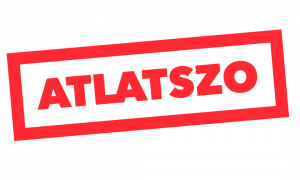The https://english.atlatszo.hu use cookies to track and profile customers such as action tags and pixel tracking on our website to assist our marketing. On our website we use technical, analytical, marketing and preference cookies. These are necessary for our site to work properly and to give us inforamation about how our site is used. See Cookies Policy
Hungary by Atlatszo – Hungarian expansion in Slovenia: first a football academy, then a wellness complex paid from taxpayer funds
This is what Atlatszo.hu wrote this week:
A Hungarian state ’fund’ called Comitatus has made a bid on a wellness hotel and tourism complex in the Slovenian town of Lendva (Lendava), local media reported. The ’fund’ owned by the Hungarian state, according to economy news site Finance, offered 9 million euros for the Terme Lendava tourism complex.
Lőrinc Mészáros is undoubtedly the most successful businessman in Hungary: he became the second richest men in the country within a few years. His lucky streak continues: in July his companies won public tenders worth 280 million euros.
Your weekend reading list about what is going on in Hungary:
The New York Times: Hungary’s Leader Was Shunned by Obama, but Has a Friend in Trump
the Trump administration is pivoting, signaling a new engagement with Hungary, as well as nearby Poland. The shift has alarmed many campaigners for democracy and the rule of law.
MIC: Milo Yiannopoulos and Steve Bannon spoke in Hungary – it cost 60k, seemingly in taxpayer money
The cost of getting Milo Yiannopoulos and Steve Bannon to Hungary for hourlong speeches in Budapest in May was upwards of $60,000 — the equivalent of four years of low-skilled labor in the Central European country.
EURACTIV: Soros foundation to quit Hungary by end-August
The foundation run by US billionaire George Soros said Thursday (16 August) that the last of its operations in Hungary would cease by 31 August, with its activities being transferred to Berlin.
The Telegraph: Viktor Orban moves to ban gender studies courses at university in ‘dangerous precedent’ for Hungary
Hungary’s ministry for human capacities said the proposed ban, which would come into effect at the start of the 2019 academic year, had been introduced because employers showed no interest in graduates from the subject.


